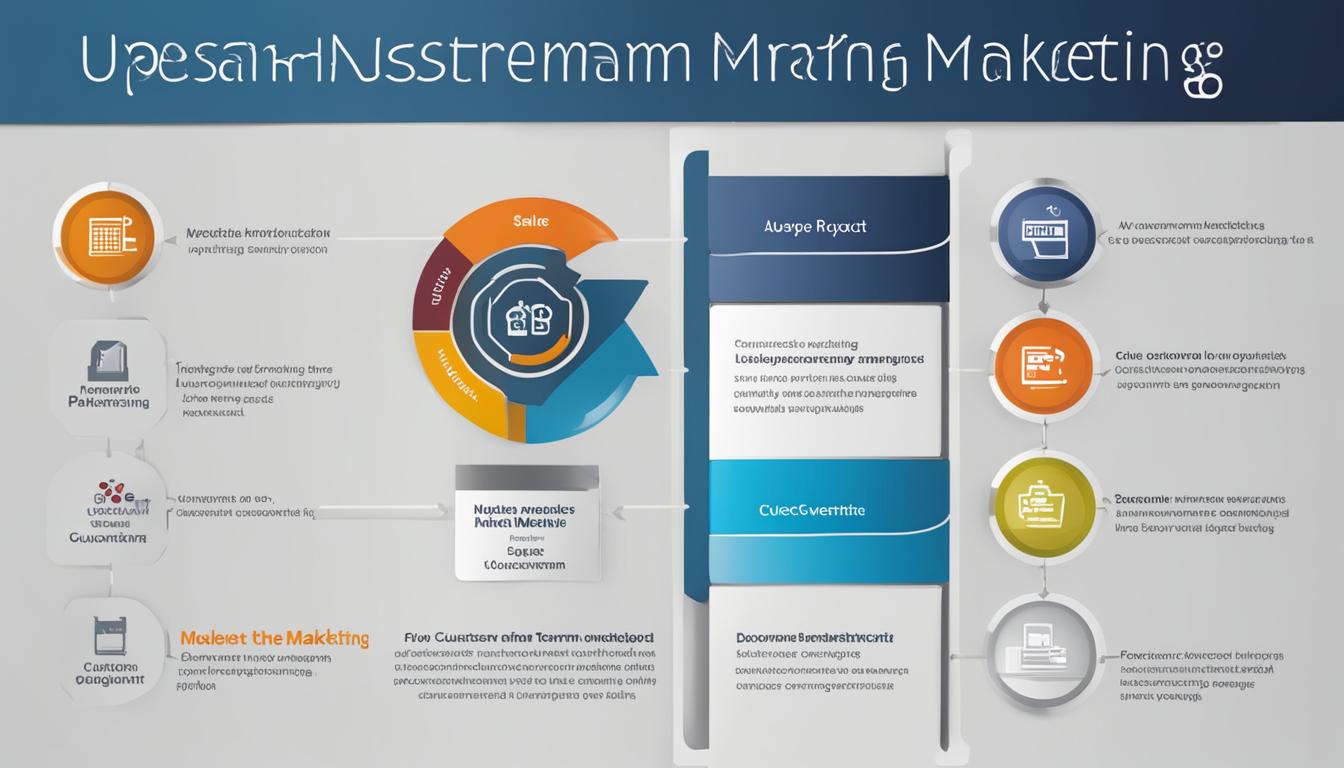When it comes to global marketing strategies, Nike is a brand that stands out. With its innovative approach, the company has successfully captured the hearts and minds of consumers worldwide. In this case study, we will delve into Nike’s marketing tactics and branding approach that have propelled the brand to the forefront of the industry.
Nike understands the power of emotional branding and has leveraged it to great effect. By featuring inspiring stories about athletes, Nike connects with consumers on a deep emotional level. This approach has allowed the company to create a strong emotional bond between its brand and its customers.
Celebrity endorsements have also played a significant role in Nike’s marketing strategy. By associating its brand with well-known athletes like Michael Jordan, Serena Williams, and Cristiano Ronaldo, Nike has successfully conveyed a sense of excellence and aspiration.
The iconic “Just Do It” campaign has become synonymous with Nike and has played a pivotal role in shaping the brand’s identity. This memorable slogan inspires customers to overcome their limitations and embrace their full potential.
Nike has also taken a bold approach to advertising, pushing the boundaries of creativity and captivation. With campaigns that go beyond traditional advertising methods, Nike has managed to capture and hold the attention of its target audience.
Key Takeaways:
- Nike’s marketing strategy revolves around emotional branding and inspiring stories about athletes.
- Celebrity endorsements, including partnerships with athletes like Michael Jordan and Serena Williams, have strengthened Nike’s brand image.
- The “Just Do It” campaign has become iconic and is closely associated with Nike’s brand identity.
- Nike’s innovative advertising approaches break traditional boundaries and captivate consumers’ attention.
Nike’s Approach to Digital Marketing
Nike recognizes the power of digital marketing in reaching and engaging with consumers in today’s digital age. The company has strategically incorporated various digital platforms, including social media, websites, and mobile apps, into its marketing strategy to effectively connect with its target audience.
One of Nike’s key digital marketing initiatives is the creation of personalized and interactive experiences for customers. Through their digital platforms, Nike offers customers the ability to customize products, access exclusive content, and receive personalized recommendations. This approach allows Nike to strengthen its relationship with customers by offering tailored experiences that cater to their individual preferences and needs.
Nike also utilizes targeted advertising to promote its products and increase brand visibility in the digital space. By leveraging data and analytics, Nike can deliver relevant and compelling advertisements to specific segments of its audience, maximizing the impact of its promotional efforts.
In addition to targeted ads, Nike has implemented influencer partnerships as part of its digital marketing strategy. Collaborating with popular influencers and athletes helps Nike amplify its brand message and reach a wider audience. These partnerships not only enhance Nike’s brand image but also increase its exposure to new and existing customers.
Email marketing is another promotional strategy employed by Nike to nurture customer engagement and loyalty. By delivering personalized email campaigns, Nike keeps customers informed about new product launches, exclusive offers, and relevant content. This personalized approach helps strengthen the bond between Nike and its customers, driving repeat purchases and fostering brand loyalty.
Overall, Nike’s approach to digital marketing showcases its commitment to leveraging technology to connect with consumers on a deeper level. By embracing personalized experiences, targeted advertising, influencer partnerships, and email marketing, Nike continues to enhance its digital presence and engage with its audience in a meaningful way.
Nike’s Brand Positioning and Messaging
Nike has established itself as a global leader in sports apparel and footwear by strategically positioning its brand around key themes of inspiration, innovation, and achievement. Through its advertising campaigns and messaging, Nike consistently reinforces this brand positioning, inspiring individuals to push their limits and reach their full potential.
Nike’s advertising campaigns are highly impactful and memorable, resonating with consumers worldwide. The company’s messaging emphasizes the power of determination, perseverance, and self-improvement. By showcasing real stories of athletes overcoming challenges and achieving greatness, Nike inspires consumers to believe in themselves and strive for success.
Brand Messaging: Empowering Individuals
Nike’s brand messaging is centered around empowering individuals to overcome obstacles and achieve their goals. Whether it’s through the iconic “Just Do It” campaign or the powerful “Dream Crazy” campaign featuring Colin Kaepernick, Nike consistently delivers messages that encourage consumers to embrace their inner strength and go after what they want.
By positioning itself as a brand that champions determination, Nike has successfully cultivated a strong emotional connection with its target audience. The company understands that consumers align themselves with brands that share their values and aspirations. Nike’s messaging successfully taps into consumers’ desire for personal growth, inspiring them to take action and pursue their dreams, both on and off the field.
Consistency and Reinforcement
Nike has been consistent in its brand messaging throughout the years, reinforcing its core values across various channels and campaigns. From traditional television advertisements to digital and social media platforms, Nike’s messaging remains cohesive, establishing a strong and recognizable brand identity.
The consistency in Nike’s brand messaging has allowed the company to build trust and loyalty among consumers. By reinforcing its brand positioning through every touchpoint, Nike has created a lasting impression and established itself as a brand that consumers can rely on for quality products and inspirational messages.
Nike’s Global Market Expansion Strategy
Nike’s global market expansion strategy has been instrumental in establishing its strong presence worldwide. The company recognizes the importance of understanding and catering to the preferences and needs of consumers in different regions. Through effective consumer engagement tactics, Nike has successfully localized its marketing strategies to resonate with diverse markets.
One of the key aspects of Nike’s global marketing strategy is the development of localized campaigns. By tailoring its messaging, visuals, and advertising to specific regions, Nike is able to connect with consumers on a personal level. This approach allows the company to tap into cultural nuances, creating a more meaningful and relatable brand experience.
In addition to localized campaigns, Nike has also formed strategic partnerships to expand its global market reach. By collaborating with local sports teams, organizations, and influencers, Nike can leverage their existing fan bases and credibility to enhance brand visibility. These partnerships enable Nike to engage with consumers in authentic and culturally relevant ways.
Nike’s product offerings are also tailored to suit the preferences of consumers in different regions. The company conducts extensive research to understand the demands of specific markets and develops products that meet those needs. This localized approach ensures that Nike’s products resonate with consumers and cater to their unique requirements.
By adapting its approach to each market, Nike has been able to establish a strong global presence. The company’s consumer engagement tactics have allowed it to connect with consumers worldwide, fostering brand loyalty and advocacy. Nike’s commitment to understanding and addressing the needs of diverse markets has been a key driver of its global success.
| Benefits of Nike’s Global Market Expansion Strategy: |
|---|
| – Personalized marketing campaigns tailored to specific regions |
| – Strategic partnerships with local sports teams and influencers |
| – Product offerings designed to suit the preferences of consumers in different markets |
| – Enhanced brand visibility and recognition worldwide |
| – Strong customer engagement and loyalty |
Nike’s Social Responsibility and Sustainability Efforts
Nike recognizes the importance of social responsibility and sustainability in today’s business landscape. The company is committed to making a positive impact on society and the environment through various initiatives.
Social Responsibility Initiatives
One of Nike’s key areas of focus is on fair labor practices. The company has established stringent standards and a code of conduct for its suppliers to ensure ethical treatment of workers. As part of these efforts, Nike conducts regular audits and inspections to monitor compliance and address any issues that arise. By promoting fair labor practices, Nike aims to create better working conditions and opportunities for workers throughout its supply chain.
In addition, Nike actively engages with local communities and invests in programs that promote education, youth sport, and social equality. The company believes in the power of sport to drive positive change and supports community initiatives that help individuals and communities thrive.
Sustainability Initiatives
Nike is also committed to sustainability and reducing its environmental impact. The company has set ambitious goals to achieve zero waste and carbon neutrality across its operations. To achieve these goals, Nike focuses on developing innovative materials and manufacturing processes.
For example, Nike has pioneered the use of sustainable materials such as recycled polyester and organic cotton in its products. The company also invests in research and development to find new ways to reduce waste, conserve water, and minimize air pollution. By embracing sustainable practices, Nike aims to create products that are not only high-performing but also environmentally responsible.
Partnerships for Social Responsibility and Sustainability
Nike understands that addressing social and environmental challenges requires collaboration. The company actively seeks out partnerships with organizations, governments, and industry stakeholders to drive collective action and positive change.
For example, Nike is a founding member of the Sustainable Apparel Coalition, a collaboration of brands, retailers, and suppliers working together to improve the environmental and social impact of the apparel and footwear industry. Through such partnerships, Nike strives to amplify its impact and drive meaningful change on a broader scale.
Overall, Nike’s social responsibility and sustainability efforts align with consumer values and contribute to the brand’s reputation for transparency and accountability. By actively addressing social and environmental challenges, Nike aims to create a more sustainable future for all.
Nike’s Global Manufacturing and Supply Chain Strategy
In order to efficiently produce and distribute its products worldwide, Nike has implemented a global manufacturing and supply chain strategy. This strategy involves careful selection of manufacturing locations based on key factors such as labor costs, raw material availability, and government policies. By strategically choosing manufacturing locations, Nike can optimize efficiency and minimize costs.
Nike also maintains a robust network of suppliers and factories that adhere to its strict code of conduct. This code of conduct ensures fair working conditions and ethical practices throughout the supply chain. By closely monitoring and collaborating with its suppliers, Nike can ensure that its products are responsibly manufactured, respecting both the rights of workers and the environment.
To meet the demands of global markets, Nike continuously optimizes its manufacturing and supply chain operations. The company utilizes advanced technologies and processes to streamline production, reduce lead times, and enhance flexibility. By doing so, Nike can effectively meet customer demand and deliver products efficiently to global markets.
The Benefits of Nike’s Global Manufacturing and Supply Chain Strategy
Nike’s global manufacturing and supply chain strategy offers several key benefits:
- Efficiency: By strategically locating manufacturing facilities and optimizing supply chain operations, Nike can produce and distribute products more efficiently, reducing costs and lead times.
- Responsibility: Nike’s commitment to fair working conditions and ethical practices ensures that its products are manufactured in a responsible and sustainable manner, aligning with the values of socially conscious consumers.
- Flexibility: Through advanced technologies and processes, Nike can quickly adapt to changing market demands and consumer preferences, ensuring timely delivery of products.
- Quality Control: By closely collaborating with suppliers and maintaining stringent quality control measures, Nike can ensure that its products meet the highest standards of quality and performance.
Overall, Nike’s global manufacturing and supply chain strategy enables the company to effectively produce and distribute its products on a global scale while upholding its commitment to responsible and sustainable practices.
Nike’s Brand Partnerships and Collaborations
Nike understands the power of strategic brand partnerships and collaborations in expanding its reach and tapping into new markets. By teaming up with major sports teams, leagues, and events, Nike strengthens its presence in the sports industry and establishes a deeper connection with sports enthusiasts. These partnerships allow Nike to align its brand with the excitement, passion, and loyalty associated with beloved sports organizations and events.
Moreover, Nike goes beyond the world of sports by partnering with fashion designers, musicians, and other influential figures. This approach allows Nike to create limited-edition collections that blend the worlds of sports and style, generating significant buzz and excitement around the brand. Collaborating with well-known personalities and creative minds enables Nike to leverage their existing fan base and credibility, resulting in increased brand visibility and customer engagement.
Through these strategic brand partnerships and collaborations, Nike not only expands its consumer base but also reinforces its position as a leader in the industry. By associating with esteemed sports organizations, fashion icons, and talented artists, Nike capitalizes on their influence to reach new audiences and enhance its brand image. These collaborations serve as a testament to Nike’s commitment to innovation, creativity, and pushing boundaries in its pursuit of excellence.
Nike’s Innovation and Product Development Strategy
Nike’s commitment to innovation and product development has been a driving force behind its success in the industry. The company prioritizes research and development, investing heavily in creating technologically advanced and performance-enhancing products. Through continuous efforts to push the boundaries of design, materials, and functionality, Nike consistently delivers superior products to its customers.
By staying at the forefront of innovation, Nike sets itself apart from competitors and maintains its position as a leader in the industry. The company’s dedication to pushing the limits and exploring new possibilities allows it to meet the ever-evolving needs and preferences of its customers.
One example of Nike’s innovative approach is its incorporation of cutting-edge technologies into its products. The brand integrates features such as Nike Zoom Air cushioning, Flyknit material, and Vaporfly technology to enhance performance and provide athletes with a competitive edge.
Nike’s innovation goes beyond product design and includes sustainability initiatives as well. The company explores eco-friendly materials and manufacturing techniques to reduce its environmental impact while still delivering top-quality products.
The table below showcases some of Nike’s notable innovations and their impact on the market:
| Innovation | Impact |
|---|---|
| Nike Air technology | Revolutionized cushioning in athletic footwear |
| Nike Flyknit | Lightweight, seamless, and sustainable shoe construction |
| Nike Free | Promoted natural foot movement and flexibility |
| Nike Adapt | Self-lacing and customizable footwear technology |
Through its unwavering commitment to innovation and the development of groundbreaking products, Nike continues to shape the future of the sportswear industry. By combining cutting-edge technologies, superior design, and sustainable practices, Nike ensures that its products meet the evolving needs and expectations of athletes and consumers worldwide.
Nike’s Customer Relationship Management Strategy
Nike understands the importance of building strong and long-lasting relationships with its customers. Through its customer relationship management (CRM) strategy, the company aims to enhance customer engagement and foster loyalty. Nike leverages customer data to personalize its marketing communications and offers, creating a tailored and personalized experience for each customer.
By analyzing customer data, Nike is able to gain valuable insights into customer preferences, behaviors, and demographics. This enables the company to segment its customer base and deliver targeted marketing messages that resonate with each group. These personalized communications allow Nike to establish a deeper connection with its customers, leading to increased engagement and brand loyalty.
In addition to personalized marketing communications, Nike also invests in providing exceptional customer service and support. The company understands that positive customer experiences at every touchpoint are crucial for building trust and long-term relationships. Nike’s customer service representatives are trained to provide knowledgeable and friendly assistance, ensuring that customers feel valued and supported throughout their journey with the brand.
Furthermore, Nike’s CRM strategy extends beyond the purchase process. The company actively engages with its customers post-purchase through various channels, including social media, email marketing, and loyalty programs. Nike provides exclusive content, offers, and rewards to its loyal customers, further incentivizing their continued engagement and advocacy.
Through its CRM strategy, Nike aims to foster customer loyalty and advocacy. By prioritizing customer relationships, the company strengthens its brand identity and establishes itself as a trusted and preferred choice among consumers.
Benefits of Nike’s Customer Relationship Management Strategy:
- Enhanced customer engagement and loyalty
- Personalized marketing communications and offers
- Deeper understanding of customer preferences and behaviors
- Exceptional customer service and support
- Incentives for customer advocacy and brand loyalty
| Key Aspects of Nike’s CRM Strategy | Benefits |
|---|---|
| Personalized marketing communications | Increased customer engagement and brand loyalty |
| Segmented customer data analysis | Targeted and relevant marketing messages |
| Exceptional customer service and support | Positive customer experiences and trust-building |
| Post-purchase engagement through various channels | Increased customer retention and advocacy |
Nike’s Competitive Analysis and Future Outlook
Nike operates in a highly competitive industry, facing competition from major sportswear brands such as Adidas, Under Armour, and Puma. The company conducts regular competitive analysis to identify market trends, consumer preferences, and competitors’ strategies. Nike aims to stay ahead of the competition by continually innovating, expanding into new markets, and strengthening its brand presence.
Nike’s competitive analysis involves studying the strategies and tactics employed by its competitors to gain insights and identify areas for improvement. By understanding the market landscape and consumer behavior, Nike can position itself strategically to meet the evolving needs and preferences of its target audience.
One of Nike’s key strengths is its brand recognition and reputation. The company has built a strong and loyal customer base by consistently delivering high-quality products and engaging marketing campaigns. Nike’s commitment to innovation and performance has solidified its position as a market leader.
To maintain its position and sustain growth, Nike continues to invest in digital marketing, sustainability initiatives, and international expansion. The company recognizes the importance of digital platforms and e-commerce, and it leverages them to reach a wider audience and drive sales. Nike’s focus on sustainability aligns with the increasing demand for environmentally friendly products and practices, further enhancing its brand image.
Looking ahead, Nike’s future outlook remains positive. The company’s focus on innovation allows it to introduce cutting-edge products that meet consumers’ ever-changing needs. With its extensive global presence, Nike has the opportunity to tap into emerging markets and expand its customer base. By staying attuned to market trends, leveraging technology, and staying true to its brand values, Nike is well-positioned to maintain its market leadership and drive continued success in the sportswear industry.
Conclusion
Nike’s global marketing strategy has been the driving force behind its incredible rise to become one of the most recognized and successful brands in the world. Through their emphasis on emotional branding, celebrity endorsements, innovative advertising, and targeted marketing campaigns, Nike has managed to forge deep connections with consumers and establish a powerful brand presence.
Moreover, Nike’s commitment to social responsibility, sustainability, and customer engagement has solidified its position as a leader in the industry. By prioritizing ethical practices, creating sustainable initiatives, and continuously engaging with their customers, Nike has further enhanced its reputation and built trust among consumers.
As the brand looks to the future, Nike remains focused on innovation, product development, and international expansion. By continually pushing the boundaries of design and functionality, investing in new and advanced technologies, and exploring new markets, Nike is well-positioned to drive growth and maintain its success in the global market.




